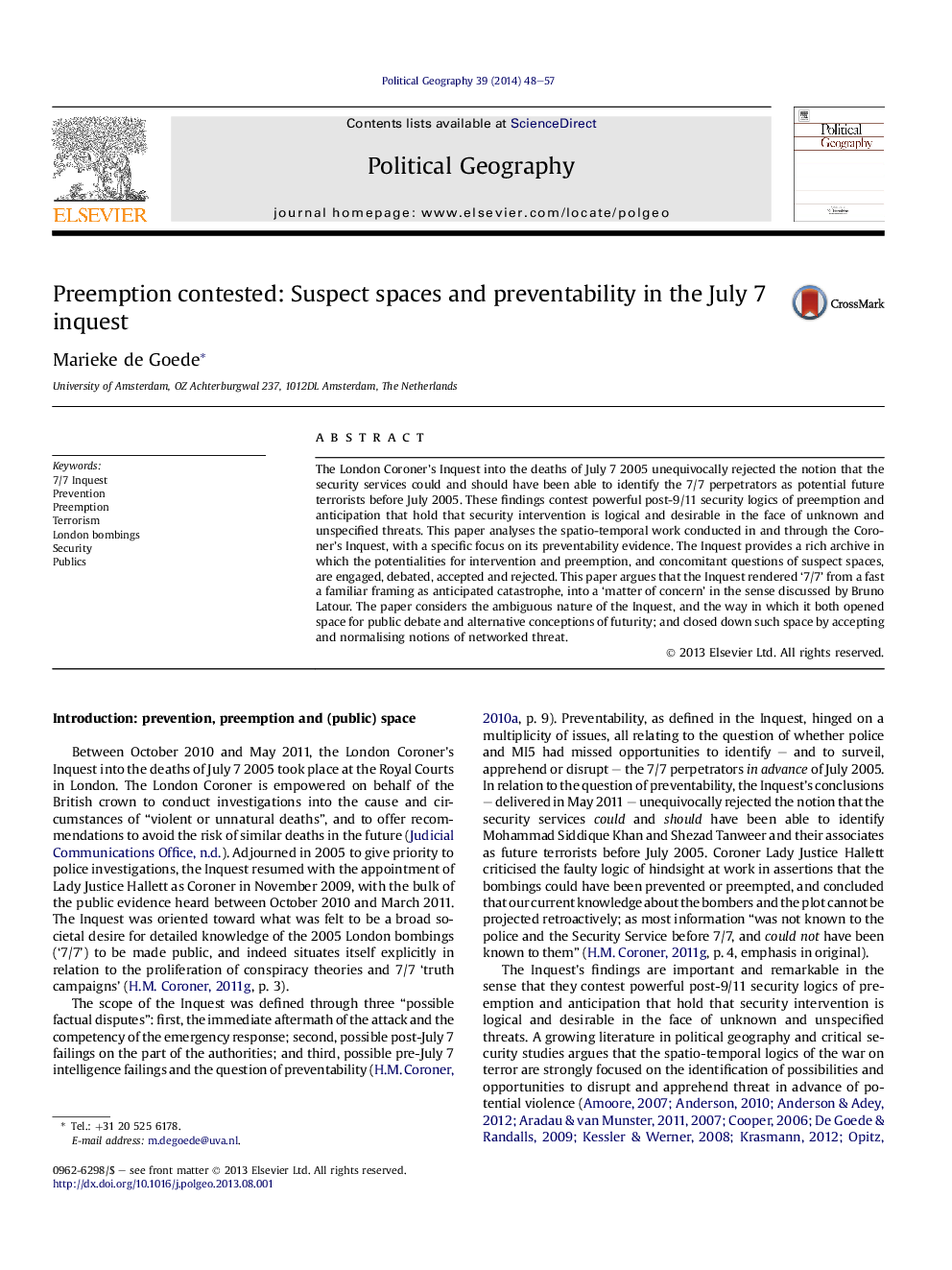| Article ID | Journal | Published Year | Pages | File Type |
|---|---|---|---|---|
| 7493610 | Political Geography | 2014 | 10 Pages |
Abstract
The London Coroner's Inquest into the deaths of July 7 2005 unequivocally rejected the notion that the security services could and should have been able to identify the 7/7 perpetrators as potential future terrorists before July 2005. These findings contest powerful post-9/11 security logics of preemption and anticipation that hold that security intervention is logical and desirable in the face of unknown and unspecified threats. This paper analyses the spatio-temporal work conducted in and through the Coroner's Inquest, with a specific focus on its preventability evidence. The Inquest provides a rich archive in which the potentialities for intervention and preemption, and concomitant questions of suspect spaces, are engaged, debated, accepted and rejected. This paper argues that the Inquest rendered '7/7' from a fast a familiar framing as anticipated catastrophe, into a 'matter of concern' in the sense discussed by Bruno Latour. The paper considers the ambiguous nature of the Inquest, and the way in which it both opened space for public debate and alternative conceptions of futurity; and closed down such space by accepting and normalising notions of networked threat.
Related Topics
Social Sciences and Humanities
Arts and Humanities
History
Authors
Marieke de Goede,
